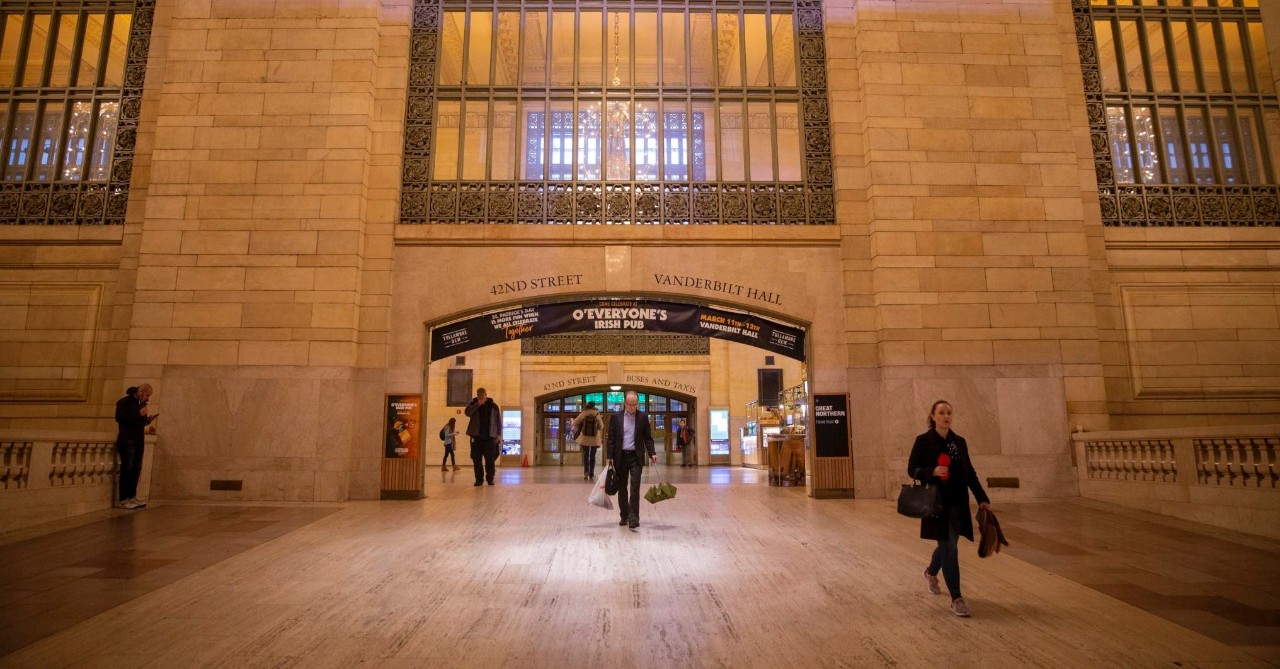
Job Search Tips During the COVID-19 Pandemic
How Jefferson students can continue to look for jobs and internships while social distancing.
During the COVID-19 pandemic, some companies have pressed pause on hiring, while others with full-time jobs and summer internships to fill have shifted to video interviewing.
How can students stand out in this uncertain climate? Be as responsive, reliable and adaptable as possible—and think of creative ways to make the employer’s life easier.
Here are some tips on how Jefferson students can continue their job search during the pandemic:
Be responsive and easy to reach. Every interaction you have with an employer is a chance for them to assess how you’d communicate with their clients and customers. Respond to every potential employer’s outreach within 24 hours. As the associate director of industry relations, I often call students to confirm interviews; roughly 80 percent of the time my call goes unanswered or voicemails are full. This is frustrating. Keep in mind to:
- Answer calls from unknown numbers—it might be an employer. Be diligent about reviewing missed calls, as new “spam” phone settings may impede a call from going through until the number is added as a contact.
- Record a professional voicemail and clear your voicemail inbox. The voicemail can simply say: “You have reached [your first name]. Please leave a message, and I will return your call as soon as possible.” Have a friend call your phone to make sure your voicemail isn’t full.
- Check your Jefferson and personal email—and spam folders—regularly. Employers’ emails may accidentally get routed to junk or the “other” tab on your Outlook app.
Be reliable (call when you say you will). Once an employer invites you to a video interview, add the date to your personal calendar. Then, reply to clearly confirm who’s calling, and when, to avoid miscommunication. Here’s an example: “I look forward to talking to you tomorrow, Wed., March 25, at 11 a.m. ET. I will call you then at [phone number] from my cell [your phone number].” Include Eastern Time (ET) in case they’re not local, and don’t just say “tomorrow” (in case you send the email late at night and the employer opens it the next morning). Anticipate the employer’s needs: Attach your resume and include your portfolio link in your email so the interviewer has everything in one place.
Prepare for the online video interview. Don’t wing it. Jefferson’s Career Services Center offers a free online tool for students, Big Interview, with thousands of interview questions and tips on how to answer them. You can record yourself and play the video back to see how you did. There’s also a step-by-step “Answer Builder” for creating answers to behavioral questions (such as, “Tell me about a time when …”). You also can refer to our comprehensive Interview Guide on our website and practice using the STAR method to answer interview questions (by describing the Situation you were in/Task you had to solve, Action you took and Result you achieved).
- Dress professionally from head to toe. Don’t wear pajama pants in case you have to get up to fix the lighting or silence a ringing phone.
- Choose a quiet room. Tell everyone in your house the time of your interview so they don’t barge in. We usually suggest having a neutral background, but fashion employers do like to see your style. Just be sure it’s all tasteful, and don’t let your dog sit on your bed. Distractions—even cute ones—can detract from the conversation.
Show that you’re a technically savvy problem-solver. I’ve set up hundreds of webcam interviews, and some days I just can’t get my microphone to work. In any video interview, employers will be evaluating your ability to problem-solve and remain calm, not get it perfect on the first try. Think through some backup plans so you can adapt on the spot.
- Set up your computer 30 minutes prior to the interview. Video interviews have software you’ll need to download, which might take time, so don’t wait until five minutes before the call.
- Set a secure connection. Connect an ethernet cable directly into your computer so you’re not relying on spotty WiFi. For voice, I strongly advise using a cellphone or landline to call into the provided conference call number, rather than rely on the computer’s microphone. (In fact, I silence the volume on my computer entirely.) When you call in, you’ll be able to problem-solve with the employer if your Zoom meeting isn’t connecting. And if your webcam freezes, the picture might get fuzzy, but your conversation will continue flowing without awkward delays.
- Identify potential problems and come up with back-up solutions. What if the video software doesn’t work? That doesn’t have to mean the end of the call. Be ready to suggest other options, such as FaceTime or Google Hangouts. Have your Skype account pulled up and ready to go as backup. Right now, employers are overwhelmed. Your goal is to identify problems they’re having and suggest ways you can help. If you can tell the employer is hesitating on setting a date for you to get started in the office, inform them that you have Photoshop or AutoCAD on your computer at home and could work remotely. Show you’re adaptable to other options. Ideally, you already have established yourself as a reliable person as a candidate, so they may feel more comfortable in your ability to work remotely. Plus, the employer will appreciate that you could adapt and problem-solve in the moment.
Send a message to internship supervisors you’ve had in the past to see if they need help with design or administrative work that can be done remotely.
In addition to interviewing, here are other ways to work on your career and job search while social distancing
Finesse your online portfolio and resume. Perfect your application materials now so you can hit apply as soon as your dream employer starts posting jobs again. If you’d like more targeted support from Jefferson’s Career Services staff, you can make an appointment in Handshake. We’re offering virtual resume reviews, one-on-one appointments and mock interviews over the phone or through Adobe Connect.
Learn the new skill you’ve been putting off. If you’ve always wanted to learn coding but felt too busy, now is the time to invest in yourself. Udemy offers inexpensive courses on SEO and coding, and Skillshare features free classes on topics such as graphic design, e-commerce and freelancing.
Be visible on LinkedIn. Social distancing doesn’t apply to online visibility. Add posts about topics relevant to your industry to get on employers’ minds. Reach out to alumni contacts you’ve met this year to let them know you’re thinking about them and hope they’re doing well. Send a message to internship supervisors you’ve had in the past to see if they need help with design or administrative work that can be done remotely.
The worst thing you could do in a time of social distancing is to get out of the job search game entirely.
Get creative on how you can contribute from afar. Think of ways you can help others get through these tough times while contributing your professional skills. If you’re a health sciences major, start a Facebook community group to help people in your neighborhood obtain the supplies or support they need to get through COVID-19. If you’re a visual communication design student, put together an infographic about social distancing to share on your social media pages. Once you get back to interviewing, this will offer you a rich set of experiences and problem-solving know-how to talk about to a potential employer.
Remember, this will one day end. The worst thing you could do in a time of social distancing is to get out of the job search game entirely. Keep submitting your resume to jobs and internships on Handshake (log in with your Campus Key)—employers continue to post new opportunities daily. Sign up for Campus Philly’s online-only Intern Philly event where you can search for internships or full-time jobs through Monday, March 30. Keep your resume circulating so that when the social distancing ends, your job search isn’t just beginning.
Ainsley Maloney is associate director of industry relations at Jefferson.



